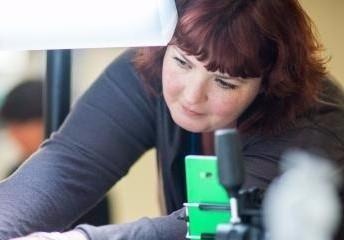5 learning design insights from LT Summer Forum 2017

Learning Technologies Summer Forum (LTSF) and Learning & Skills Conference is a vibrant event, brimful of ideas and discussion about all aspects of digital learning. Attracting some of the world’s top speakers, the Summer Forum is an annual highlight for those working with learning technologies, from L&D managers to instructional designers.
This year, we sent the entire Sponge Learning Design team (yes, all of them!) to the conference so they could benefit from the rich exchange of ideas. Here’s a selection of their Summer Forum thoughts and highlights.

Rhea Stevens, Learning Design Manager
I came away from LTSF with a deeper understanding of just how much the role of Learning and Development professionals is shifting. Anca Iordache, Head of Social Learning and Collaboration at Citi described how increasing business demands and changes in technology mean that L&D people must expand their skillsets. She told the Learning Models session at the conference that being ‘curators’, ‘community managers’, ‘marketers’ and ‘storytellers’ are just some of the areas that 21st century learning professionals need to master if they want to stay relevant and deliver greater impact.

James Thomas, Learning Designer
The message that stood out for me was get to know your learners. During the conference session, User experience - why it’s fundamental and how to make it work, I took away three golden rules: ‘keep it simple’, ‘keep it consistent’ and ‘keep it standard.’ Author Rob Hubbard and learning consultant, Myles Runham explained how User Design (UX) and User Interface (UI) enables people to move through digital learning effortlessly.
Later, Jo Cook and Stella Collins reiterated the importance of learner focus in a session called Mind shift: moving people to a positive learning state. They concentrated on how to move learners to a positive mindset. I think we tend to do this naturally as learning designers, but we need to map out the emotional direction we wish learners to follow to make sure it’s reflected in the content and style of our elearning.

Jo Saunders, Learning Designer

My top Summer Forum insight was from David Kelly, Executive Director at The Elearning Guild. In his session on Emerging Technologies, he shared tips for staying ahead with the ever-changing world of technology: plug in, listen, discuss, contextualise and play. David recommends doing this by keeping up on emerging trends through social media; see what developers are working on; what people are getting excited about; ask questions; join the discussion. Crucially, he says it’s not about how technologies are being used for learning, it’s about their potential for learning. And, then there’s my favourite part; get out there and play with emerging technology!
Rachel Franklin, Graduate Content Writer
I was drawn to the discussion on simulations and providing a safe environment for deliberate practice. The point was made that practice (alone) doesn’t make perfect. People turn repeated behaviours into habit, and so we need to be creating environments where people can practice new behaviours, taking them one-step further into best practice, and then incorporating them into their everyday situations. Creating environments that encourage replay to do better are key, and so simulation, gamification, and narrative all need to play strong interweaving parts within our digital learning solutions.

Brayley Pearce, Learning Solutions Specialist

A lunchtime session by Fosway Group on the digital learning market raised some interesting questions on what will replace the Learning Management Systems (LMS) we currently use. The audience was asked to consider what’s good and bad about the LMS they currently use, and what they want and need for the future. There were some thought-provoking responses about the way technology can be used to measure, capture and track learners. But for me, I kept coming back to two vital factors: what do we need to achieve and what’s the best way to help people do that. One thing’s certain, the clock is ticking for the LMS as we know it.
We’re interested to know your Summer Forum highlight and what has captured your imagination. Get in touch to continue the discussion.
And finally, whatever you take away from the event, don’t rest on your laurels.
As Conference chairman, Donald H Taylor puts it: “It’s time for action; nothing happens by itself.”